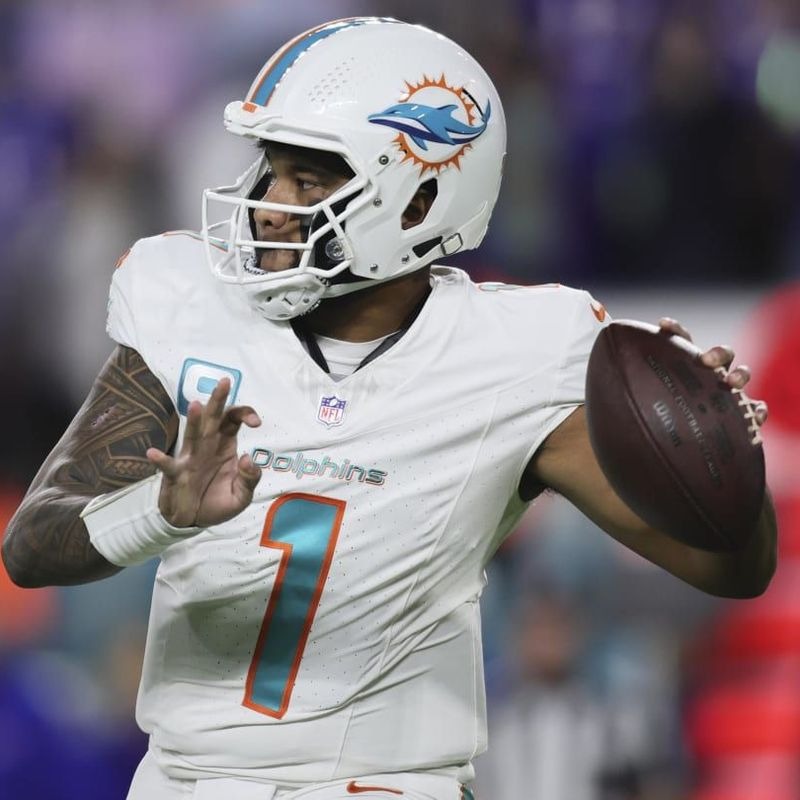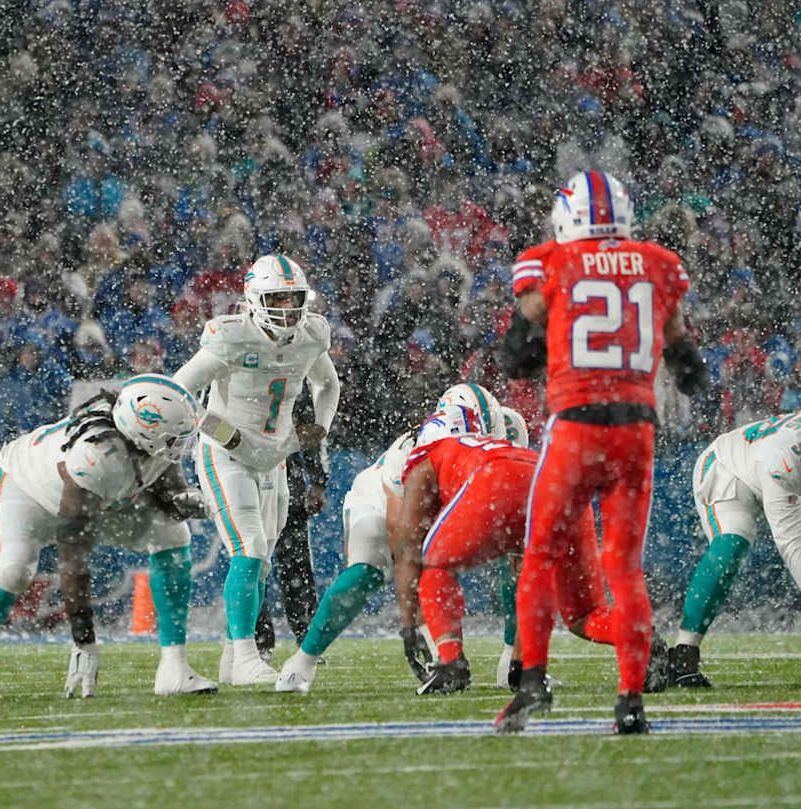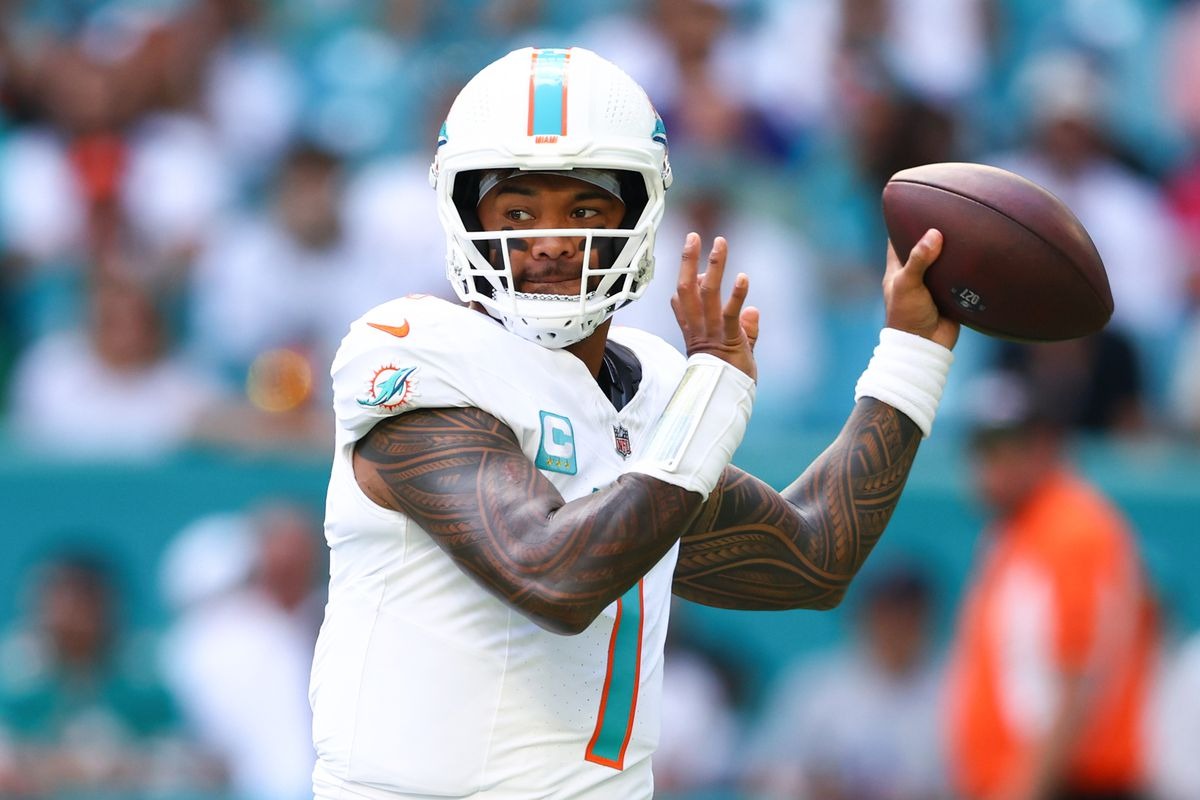In the realm of NFL contract negotiations, the case of Miami Dolphins quarterback Tua Tagovailoa and his much-anticipated contract extension creates a buzz, often drawing comparisons with contract situations of other star quarterbacks across the league. Names like Justin Herbert, Jalen Hurts, Daniel Jones, and notably Jared Goff surface predominantly due to the hefty paychecks their second NFL contracts have secured. However, the conversation frequently omits an essential component: the timing of these extensions, presenting a unique narrative compared to Tua’s circumstances, with Jared Goff’s contract being a noteworthy exception.
Tagovailoa is poised to play the 2024 season under a fifth-year option, earning a guaranteed $23.2 million. His agents are likely eyeing Goff’s lucrative deal with the Detroit Lions, which boasts an average annual value of $53 million and a staggering $170 million in guaranteed funds, as a benchmark for negotiations. While parallels can be drawn between the achievements and rankings of Tua and Goff within the NFL hierarchy, there are critical distinctions; Goff was no longer on his rookie contract nor with the team that drafted him, and his resume includes a Super Bowl appearance and an NFC Championship Game, setting him apart.
When examining the timeline for extended contracts among other first-round quarterbacks who inked second deals with their drafting teams, Tua’s pending extension appears less anomalous. Historical precedents include Josh Allen’s 2021 offseason deal with the Buffalo Bills and Kyler Murray’s July 21, 2022, extension with the Arizona Cardinals.
Similarly, both Justin Herbert and Joe Burrow secured their extensions in the summer preceding their fifth season. Jalen Hurts’ April 2023 deal with the Philadelphia Eagles presents a slightly different case, given he wasn’t a first-round selection and was approaching the end of his rookie contract.
The case of Lamar Jackson with the Baltimore Ravens provides a compelling precedent for Tua’s situation. Like Tua, Jackson entered discussions for an extension with significant achievements but also unanswered questions. It wasn’t until after Jackson played under his fifth-year option, subsequently receiving the non-exclusive franchise tag, that he signed a substantial five-year, $260 million extension with the Ravens—a notable delay addressing potential uncertainties.
Predictions from reputable NFL reporters suggest Tua will likely secure his extension in 2024, drawing a parallel to Jackson’s trajectory, underscoring a possible strategic patience by the Miami Dolphins. This approach, underscored by the Ravens’ successful handling of Jackson’s contract, highlights a rational, albeit rare, strategy of allowing a high-caliber quarterback to prove his worth under the fifth-year option before committing to a significant long-term investment. It serves as a reminder that while the anticipation for Tua’s extension grows, precedent supports a patient approach, validating the notion of waiting another season before finalizing a monumental financial commitment.




